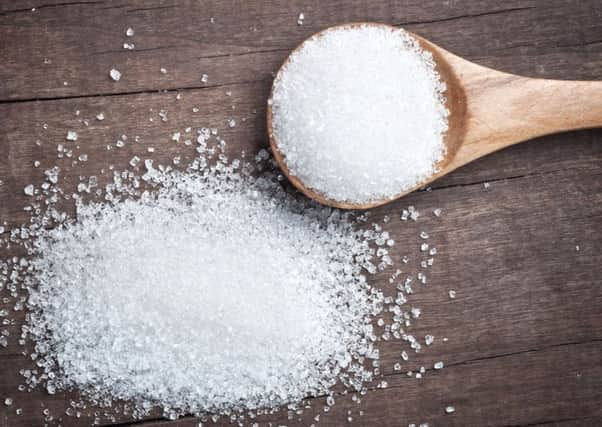One in four Scots consume half a day's sugar by 11am


The study, published ahead of the introduction of the so-called “sugar tax” tomorrow, found that almost half of people in Scotland admitted they pay no attention to the amount of sugar in the food and drink they consume.
More than a third reported being unsure of which food and drink items are high in sugar, while around half said they are not aware of how much sugar they should be consuming each day. As a result, more than half regularly exceed the daily recommended sugar allowance – and in some cases people are consuming up to five times the suggested amount.
Advertisement
Hide AdAdvertisement
Hide AdThe Soft Drinks Industry Levy will mean that manufacturers of soft drinks containing more than 5g of sugar per 100ml will pay a tax of 18p a litre to the Treasury – 24p per litre if the sugar content is over 8g per 100ml – with the cost passed on to retailers and customers. The government and health campaigners hope this will put consumers off buying the most sugary drinks and lead to a decline in obesity.
Many firms have reformulated their recipes to avoid the tax – including AG Barr, maker of Irn-Bru, which has cut the amount of sugar in a can from 8.5 teaspoons to four (10.3g per 100ml to 4.7g per 100ml).
Giles Brook, chief executive, of drinks brand Vita Coco, which commissioned the research, said: “Processed sugar like those found in most fizzy drinks is the real danger, and we encourage the nation to avoid those whenever possible or practice moderation.”
Vita Coco’s Original Natural Coconut Water contains 3.9g of sugar – just under one teaspoon – per 100ml.
Campaign group Action on Sugar recently revealed that some blueberry muffins – a popular breakfast food for people on the go – can contain up to eight teaspoonfuls of sugar each. Meanwhile, other popular morning products, such as cereals, cereal bars and fruit juices can contain high levels of sugar.
Action on Sugar chairman Professor Graham MacGregor said: “It’s evident that more must be done by food and drink manufacturers to reduce the added sugar in their products. We need robust and mandatary sugar reduction targets with strict penalties for those companies who do not comply.”
The current recommendation for sugar is that it does not exceed 10 per cent of daily energy intake for an adult. Children aged five to 11 should not have more than 24g of sugar a day.
Registered nutritionist Anita Bean said: “With many people consuming too many high-sugar foods and drinks, it is key we use the new Soft Drinks Industry Levy as a reason to look at our lifestyles and diet and address the issue.”